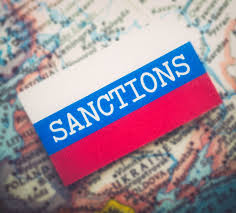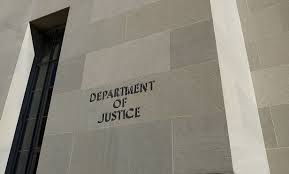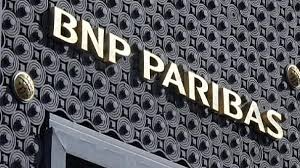The New Enforcement Threat – Sanctions Violations
 To label the current enforcement environment as “tough” is a dramatic understatement. I never understand why lawyers spend so much time touting the new, aggressive enforcement era as part of their marketing pitches – everyone knows we are in a tough environment, there is no need to remind everyone.
To label the current enforcement environment as “tough” is a dramatic understatement. I never understand why lawyers spend so much time touting the new, aggressive enforcement era as part of their marketing pitches – everyone knows we are in a tough environment, there is no need to remind everyone.
Prosecutors have put together criminal and civil enforcement partnerships that are proactive and extremely successful. From a macro standpoint, prosecutors have done an extraordinary job. I know it is easy to criticize prosecutors for failing to charge senior executives in the financial industry but they have found plenty of areas to accomplish “headline” results.
In the early 2000s, companies faced AML compliance requirements imposed by the USA PATRIOT Act. A few years later they were challenged on foreign bribery issues and responded by building effective anti-corruption compliance programs.
Add to this mix of AML and anti-corruption issues the rapid growth in False Claims Act cases. If you are in the defense or healthcare industries, again your risks multiplied. The next year could be even worse as DOJ announced it is reviewing False Claim Act cases for criminal prosecution. Yikes!
The next significant enforcement trend has already started – violation of trade sanctions. The Justice Department and OFAC/Treasury Department have built an effective criminal-civil partnership, akin to the DOJ-SEC partnership in FCPA cases.
Sanctions enforcement will follow a very typical pattern – financial institutions have been the whipping post or easy target for sanctions prosecutions. Foreign-based financial institutions are subject to US sanctions and they have blithely ignored them, notwithstanding the clear applicability of sanctions laws and regulations.
After rounding up the usual suspects in the financial industry, sanctions prosecutors will focus on other industries.
It will be hard for prosecutors to match this past year — $8.8 billion from BNP Paribas. Quietly (or not so quietly) along the way, OFAC has been stacking up settlements each year. OFAC maintains an active voluntary disclosure program and more sanctions, like Ukraine-Russia- and now Crimea, mean more cases and more violations.
Commerzbank is next on the chopping block and this upcoming year the German-based bank is expected to settle its sanctions violations for between $600 and $800 million. Even Standard Chartered, a prior sanctions violator, appears to be caught up as a recidivist for again violating sanctions restrictions.
In addition to BNP Paribas, prosecutors secured a “landmark” settlement for $152 million with Clearstream Banking, an international central securities depository and subsidiary of Deutsche Börse for violation of the Iran sanctions. A criminal investigation of Clearstream Banking is ongoing.
Mitsubishi USJ was hit with a $351 million penalty after forcing PWC to cover up banking transactions involving Iranian customers and financial institutions. PWC itself was hit with a $25 million penalty for doing so.
Aside from financial institutions that were caught in sanctions violations, DOJ and OFAC flexed their muscle into other industries. Next year will be even bigger for DOJ and OFCA because the Ukraine-Russia sanctions will garner a usual assortment of violators.
This past year companies like Fokker Services, Epsilon, Intersil, Esco, National Oil Varco, and even Red Bull landed on the OFCA enforcement plate.
Fokker services paid a $21 million penalty for selling aircraft parts and technology to Iran, Sudan and Myrnmar; Epsilon paid $4 million for sale of auto mobile video and audio equipment for re-export to Iran; Intersil paid $10 million in penalties for violating Directorate of Defense Trade Controls; Esco paid $2 million for violation of Cuba sanctions by purchasing Cuba-origin nickel briquettes; a National Oil Varco subsidiary plead guilty to criminal charges and agreed to pay $1.6 million for exporting stators (oil extraction technology) to Syria in violation of the Syria sanctions. Finally, Red Bull agreed to pay $89,775 for unauthorized travel to Cuba to film a documentary in 2009.
 DOJ and OFAC prosecutors have a robust criminal prosecution program. Each year several individuals are prosecuted for “willful” violations of the sanctions laws. It is a risk that is growing, especially in the financial industry.
DOJ and OFAC prosecutors have a robust criminal prosecution program. Each year several individuals are prosecuted for “willful” violations of the sanctions laws. It is a risk that is growing, especially in the financial industry.
For example, a former Weatherford senior officer has agreed to plead guilty and cooperate against other Weatherford executives in an ongoing investigation for the illegal sale of oilfield equipment to Iran.
Aggressive sanctions enforcement has increased the importance of proactive sanctions compliance programs. A robust compliance program is an important requirement for any significant voluntary disclosure.
Sanctions change often and maintaining accurate compliance controls is critical. Sanctions against Myanmar have been relaxed, and more changes are expected, especially if Congress cooperates in changing the Cuban sanction regime. OFAC also modified its 50 Percent Rule to extend the reach of sanctions to related companies where more than one prohibited owner may hold less than 50 percent of the related company.















